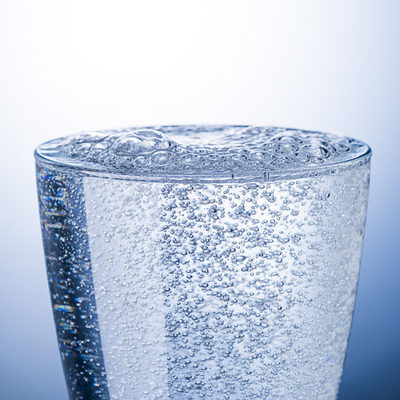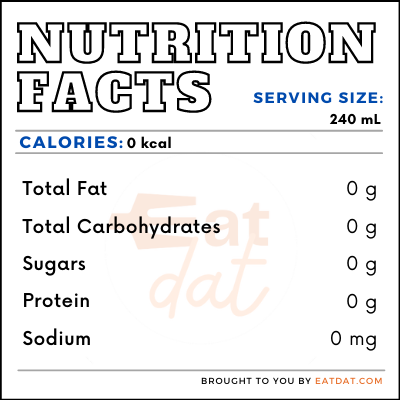
Sparkling Water
What is Sparkling Water?
Sparkling water, also known as carbonated water or soda water, is made by dissolving carbon dioxide in it under high pressure. This process is called carbonation and it gives this water the bubbly effervescence that is similar to a soda, which itself is a type of carbonated water.
- Some have additives included such as sodium chloride, sodium bicarbonate, potassium bicarbonate, sodium citrate, etc.
- The different types of carbonated water are club soda, mineral water, seltzer, sparkling water, and tonic water.
The top brands are:
- Topo Chico Agua Mineral
- Gerolsteiner Mineral Water
- Mountain Valley
- Perrier Sparkling Natural Mineral Water
- Jarritos Mineragua Club Soda
- Voss Sparkling
- LaCroix
- San Pellegrino Sparkling Mineral Water
- Q Club Soda
- Ferrarelle Acqua Minerale
- Schweppes Club Soda
Origin of sparkling water
Natural carbonated water from springs have been used for centuries as a medicine in different cultures. In fact, even alcohol has often been carbonated through fermentation. The first mention we have of carbonation is in 1662, when Christopher Merret created sparkling wine by fermenting the wine a second time with the addition of sugar and molasses. Almost a century later, Joseph Priestly carbonated still water by dripping sulfuric acid into it. He released a paper in 1772 titled “Impregnating Water with Fixed Air”. In 1783, the Schweppes Company was born, selling carbonated mineral water in accordance with Priestly’s research.
Commercial production
Commercial soda water is made by chilling filtered still water to at least 8⁰C. Some processes include the addition of different flavors and compounds to reduce acidity. The water is then put under high pressure with carbon dioxide using machines. This can also be made outside factories in restaurants, bars, and even homes using machines called carbonators.
Nutrition
The nutritional value for 240 mL of sparkling water:

Water is a very vital food that the body requires and regular and sufficient intake of water helps keep the body healthy. Carbonated water can also fulfill this function. In addition, it can provide a short-term satiating effect. However, it often has additives such as added sugar and salt as well as artificial flavors, which might not be the best thing when taken in large quantities. Another problem is the acid content in it, which can cause teeth decay. Sipping this over long periods can cause the teeth serious harm.
Sparkling water recipes
Carbonated water can be used to give a bit of zing to different recipes. Here are a few interesting recipes:
FDA regulations
Carbonated water falls under the bottled water category in the Code of Federal Regulations. The FDA defines sparkling bottled water as water that contains the same amount of carbon dioxide from the source that it had at the emergence from the source after treatment and possible replacement of carbon dioxide.
References
Ibrahim M. Abu-Reidah, in Trends in Non-alcoholic Beverages, 2020
https://www.sciencedirect.com/book/9780128169384/trends-in-non-alcoholic-beverages
Science History Institute, Distillations, Fizzy Water: The Unnatural History of a Carbonated Drink, Episode 217, 2017
https://www.sciencehistory.org/distillations/podcast/fizzy-water
